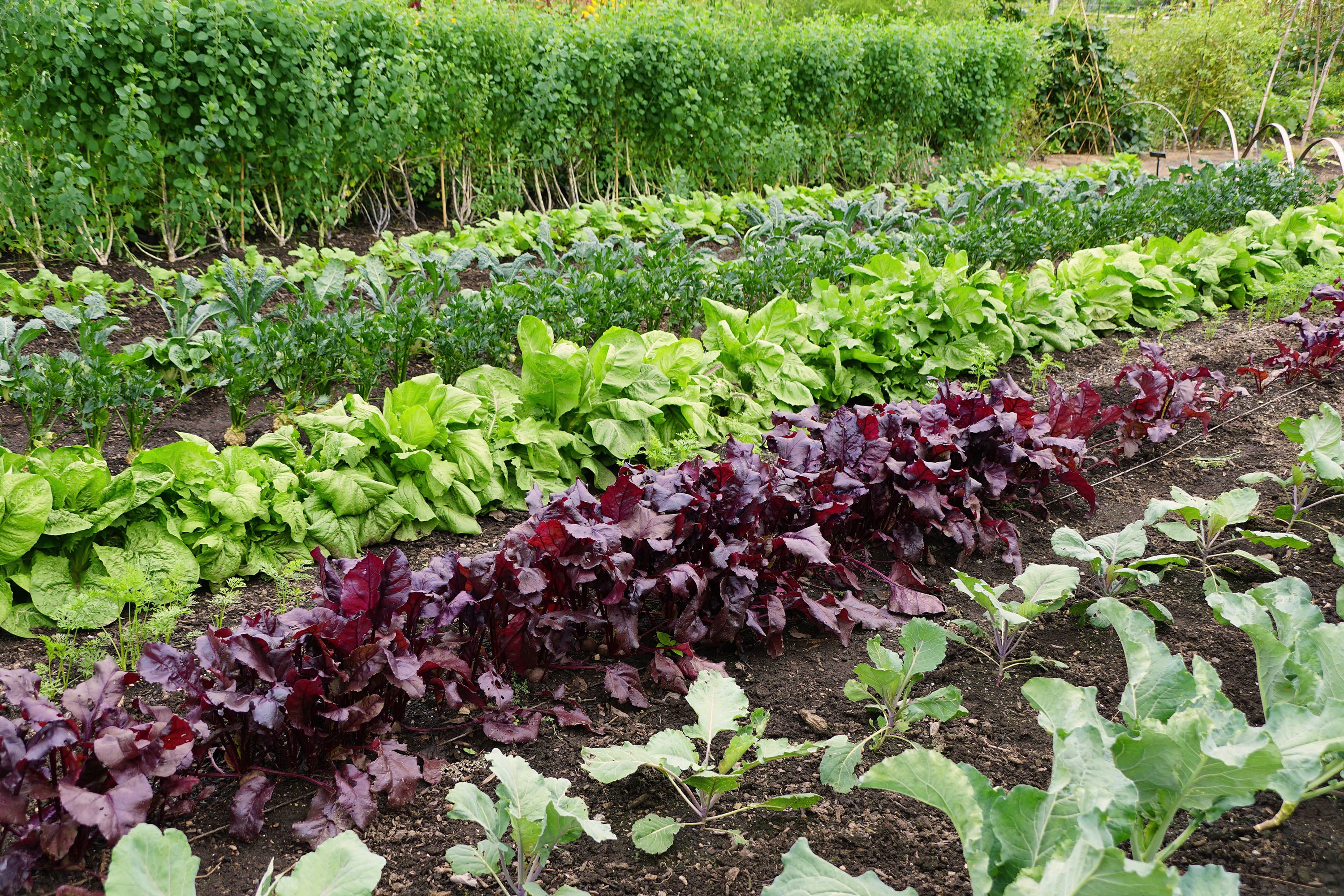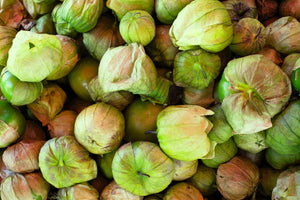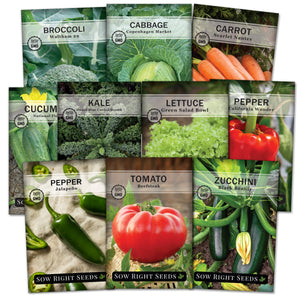13 Common Questions to Ask Your Plants for a Healthy, Thriving Garden
Beginner gardeningWondering if your plants are healthy?
You can’t pull them up to check the roots, and there’s no blood test to check their vitamin levels. With a little practice, however, you can learn to understand what your plants are telling you.
In this guide, we'll cover the common questions to ask and how to read the signs they're giving you. Checking in daily and learning your garden's language will help you grow a thriving, productive garden.

Make Gardening Health a Daily Check Up
Gardens don’t take time off. They keep growing every day, and lots of changes can happen overnight. One day there aren’t any blooms, and the next day there are several small buds. So try to have a daily practice of checking your garden and specifically looking at the leaves. This part of the plant will give you the most information. You’ll be checking for disease, pests, and overall plant health. With daily checkups, you will be able to answer these common questions that will help you know how your plants are growing.
How to Tell If Your Plants Are Healthy: 13 Questions to Ask Your Garden
Are my vegetables getting enough water?
Water is an essential part of plant growth. Too little and plants dry up; too much and they drown. Check daily to see if water is soaking in deep and if the soil is staying moist. After storms, check to see if water is pooling for too long in some areas. Effective watering will reduce plant stress, especially during the hot summer months.
Are my plants getting enough nutrients?
Nutrient deficiencies are often very visible. Are the leaves yellowing? Is the new growth a pale green? Are the new leaves twisted or stunted? Do tomatoes have end rot? These can be signs of nutrient deficiencies.
Some deficiencies are caused by overwatering, which can wash away nutrients. The pH levels in the soil will also affect the nutrients available to the plants.
By taking note of these signs, you can look up which nutrients your plants may be lacking.

Is something eating my plants?
It can be extremely frustrating when pests start munching on your garden. At first, it may be hard to figure out what is eating your plants since bugs like to stay hidden underneath leaves. With daily checks, you are more likely to find the culprit because most garden pests leave some tell-tale signs. Look closely for signs of aphids, cutworms, and spider mites.
Are my plants getting enough sun?
Signs that plants aren’t getting enough sun include leggy plants that look like they are reaching toward the sun, or stunted in growth and not putting out new shoots. So take note of when they get sun and for how long. Some plants need full sun while others thrive in partial shade.
Are my plants getting too much sun?
Checking in on your garden at different times of day can be helpful to see how much sun your plants are getting. They may benefit from some shade if they droop a lot in the afternoon sun. There are fabric screens that can help give some shade.
Are they flowering?
You want your vegetables to start flowering if they are going to have fruit. Tomatoes, squash, peas, etc., will all have blossoms before they develop fruit. The only thing you don’t want to bloom will be your herbs and any vegetables that are prone to bolting because that means they’re going to seed.

Are the blossoms getting pollinated?
Are you getting flowers but no fruit? That may be a sign that the blossoms are not being pollinated.
Squash plants have both male and female blossoms. However, only the female blossoms will have a squash. The male blossoms will fall off without producing a squash. So don’t be too alarmed when they fall off.
Tomatoes have perfect blossoms - both male and female in each flower. This allows for easy pollination. Tomato blossoms will fall off if they aren’t pollinated. Which means they aren’t getting wind or being visited by pollinators.
Is it time to thin?
When you check on your garden, check to see if plants are too close together? Is it time to thin some radishes and let others grow?

Are those weeds?
The sooner you can pick weeds, the better. But sometimes, you have to wait to make sure it’s not your seeds. Weeds are easier to pick when they are still young and haven’t developed a root system. Weeds will compete for resources, and they can often attract pests. We have our favorite weeding tools to help us keep on top of this important chore.
Do they need support?
Don’t wait for plants to fall over with the weight of growing produce. Daily checks can show you if the current supports are working. Are plants getting torn up in the wind? Is the growing produce too heavy?
Is it time to prune?
When plants are growing and sending out shoots, it might be time to consider pruning. With careful pruning, you can direct the plant energy into developing fruit instead of more branches. Pruning herbs and flowers will include deadheading and pinching off tops to encourage more plant growth. Tomatoes and other vegetables can benefit from pruning to allow airflow and keep the plant from overtaking the rest of the garden.
Do I need to add more mulch?
During the hot summer months, moisture can evaporate quickly. So, check often to see if your garden is drying out too quickly. If so, adding some mulch can help prevent moisture loss. Mulch can also help keep weeds from sprouting.

Is it time to harvest?
This can be the most rewarding part of your daily garden checkup. How is the produce? Are there tomatoes ready to eat? Is that yellow squash the perfect size for dinner? It can be surprising how fast vegetables ripen once they start growing. That pepper you thought needed a few more days may be ready tomorrow morning. Keep an eye on those cucumbers, too. Know when cucumbers are ready to pick so they don't overripen.
Keep Track of Changes in Your Garden

Now is a good time to pull out that gardening journal and start making some notes. These observations will help you see what is happening over time and give you a better picture of how your plants are doing. And speaking of pictures, it helps to take a few snapshots during the growing season to document the changes. All of this information will help with your gardening next year as well.
A few things you should jot down:
- Temperature. How your plant performs during evening and daytime temperatures. This will help you know if the heat or cold is causing growing issues.
- When things start blooming. Note down when your plant blooms.
- Insect Damage. If you notice insects, write down what kinds you see and what methods you use to get rid of them (handpicking, diatomaceous earth, or pesticide). What is successful and what isn't?
- Pollinators. Do beneficial pollinators, like bees, butterflies, and or moths, visit your garden? What are their preferences?
- Watering Needs. Note how much watering each plant needs.
- Light. How much light does your garden get and what type of light (part-shade, full sun, etc.). And how well do the plants perform in that light?
- Fertilizers and Soil Amendments. Did you need to add compost and fertilize some plants more than others?
By checking in daily and asking these common gardening questions, you'll learn to spot problems early and celebrate the little victories, such as the first flower bud or a perfectly ripe tomato.
Some gardeners claim their gardens talk to them. It may not be a language of words, but plants can communicate how they are doing. If you observe your garden and listen, soon you'll be fluent in garden speak.









Leave a comment